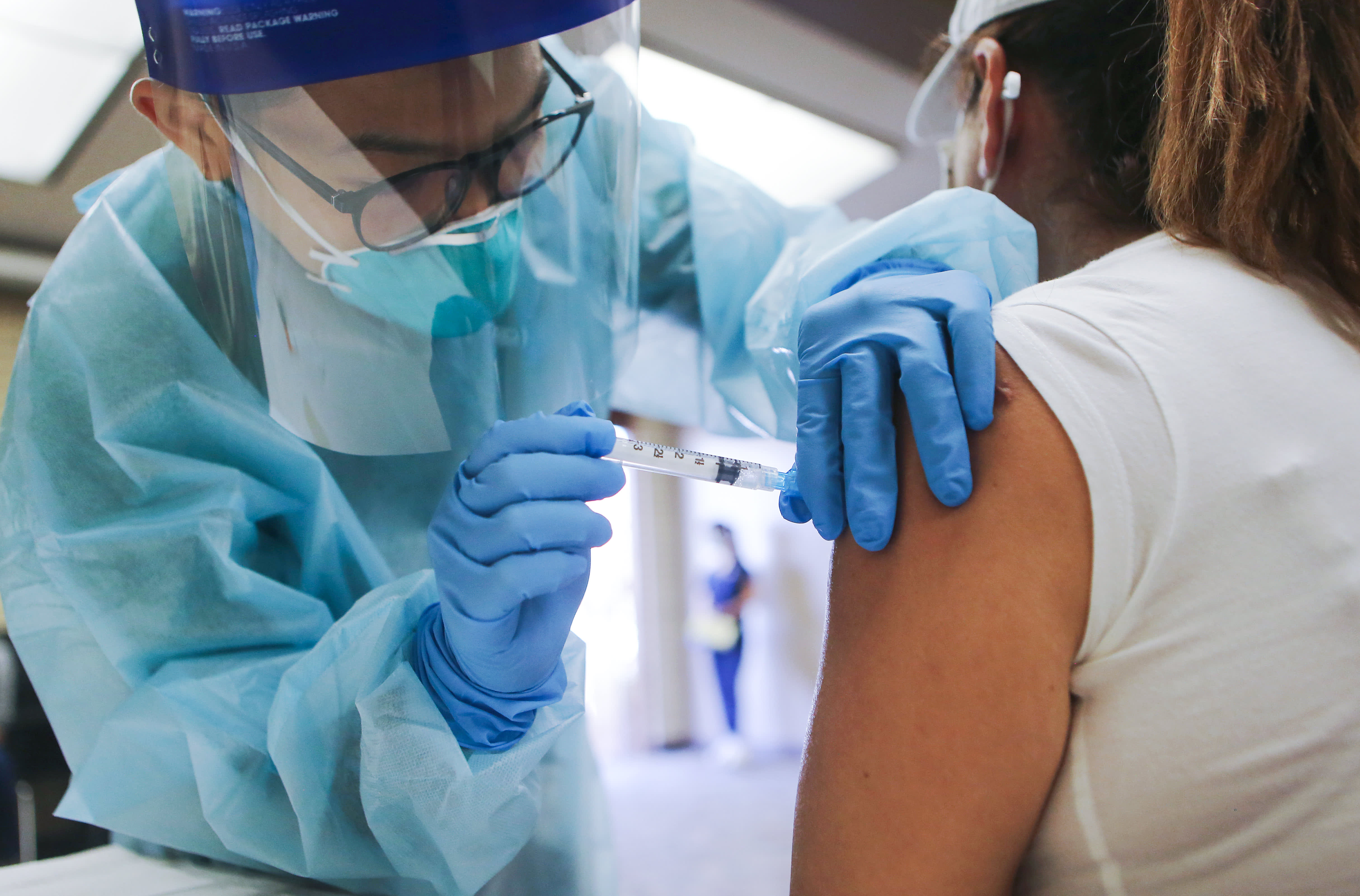A nurse administers a flu vaccination shot to a woman at a free clinic held at a local library on October 14, 2020 in Lakewood, California.
Mario Tama | Getty Images
Children and young teens could get a Covid-19 vaccine in the second half of next year, an advisor for the Centers for Disease Control and Prevention said Friday.
Dr. Jose Romero, the chair of the CDC’s Advisory Committee for Immunization Practices, said he hopes to see trials testing Covid-19 vaccines in young children beginning in the second quarter of 2021. If the vaccines prove to be safe and effective, children under the age of 18 could get their shots in the second half of next year, he said.
“I don’t think we’re going to see it in the first half of this coming year,” he said during an interview on MSNBC, adding that kids could still get a vaccine before the fall semester. “We need to see how the studies progress. We need to see that data in order to make sure that it is safe and effective in children.”
A vaccine cannot be distributed to children until it’s been rigorously tested in children in clinical trials.
Pfizer, which submitted an emergency use application to the Food and Drug Administration for its coronavirus vaccine on Nov. 20, is already testing kids 12 and older.
Moderna, which submitted an emergency use application for its vaccine earlier this week, is preparing to test at least 3,000 children as young as 12, according to a posting on clinicaltrials.gov. Moderna CEO Stephane Bancel told CNBC on Monday that the company expects to test its vaccine on children between the ages of 11 and 17 later this year. But he added that testing on children under the age of 11 wouldn’t begin until sometime next year.
“For younger children, you have to go down in age very slowly and you have to start at a lower dose to make sure it is safe,” he said during an interview on “Squawk Box.”
Romero’s comments came three days after his committee voted 13-1 to prioritize the first vaccine doses for health-care workers and long-term care facility residents.
Since the pandemic began, scientists and infectious disease experts have debated who will get immunized first and how the limited first vaccine doses will be distributed across the United States. Health and Human Services Secretary Alex Azar told CNBC on Nov. 16 that about 40 million doses of vaccine will be available by the end of this year, enough to inoculate about 20 million people, since the Moderna and Pfizer vaccines require two shots.
Medical experts have previously advocated for health-care workers to get the vaccine first, followed by vulnerable Americans, including the elderly, people with preexisting conditions and essential workers. Children and young adults, who are seen as at less of a risk for severe disease, are expected to get the vaccine last.
During the meeting, CDC officials also said there is currently no data on how pregnant women will respond to Pfizer’s and Moderna’s vaccines, which both use messenger RNA, or mRNA, technology. About 75% of health-care workers are women, according to a presentation during the meeting, and 330,000 of them are pregnant.
Officials said they plan to provide further guidance on pregnant women once phase three trial data has been fully reviewed.
